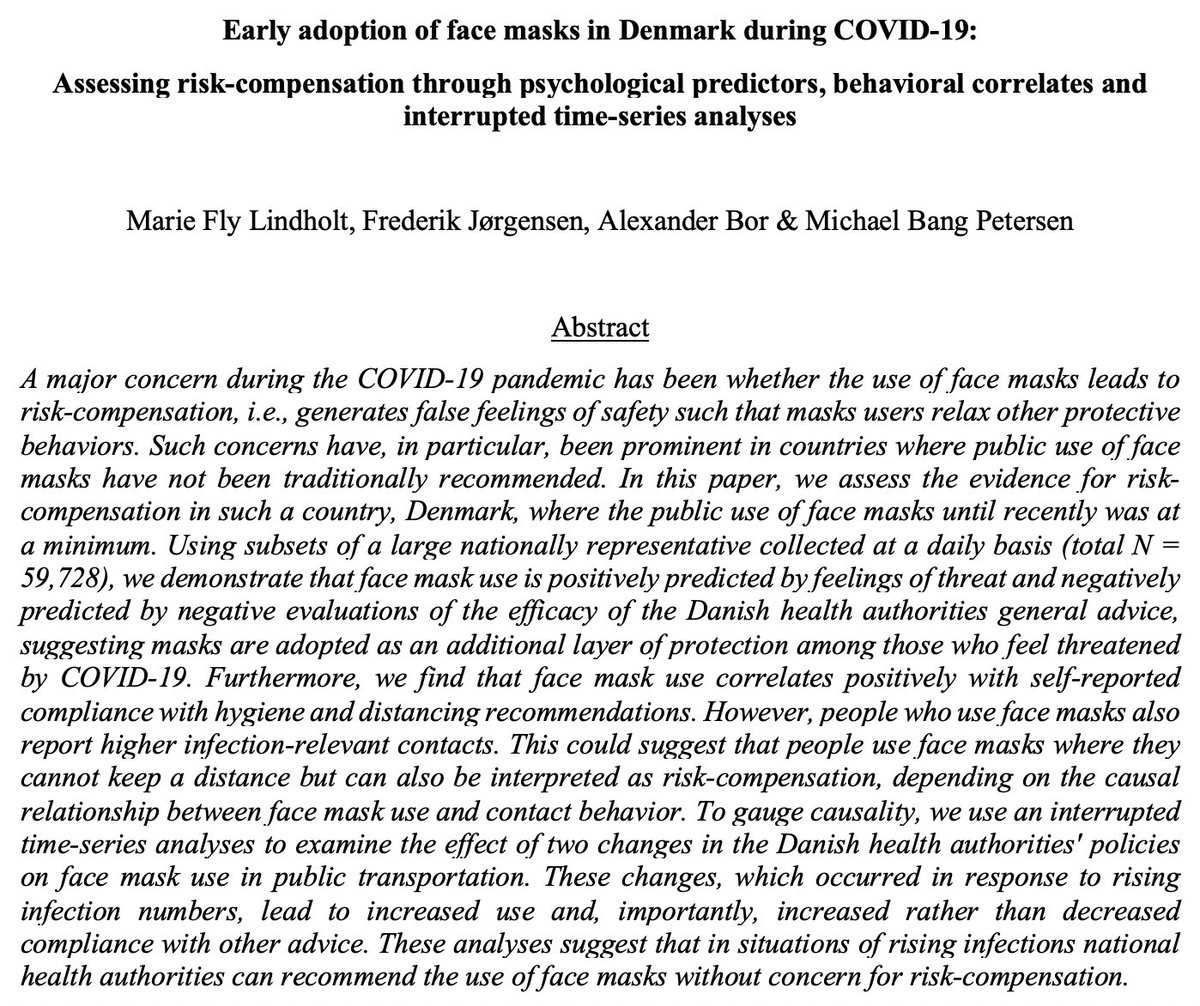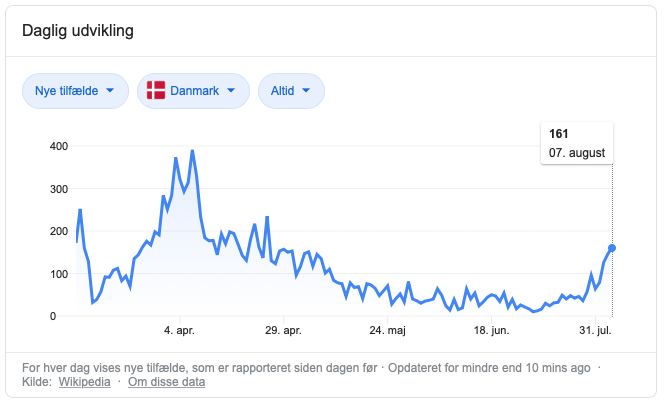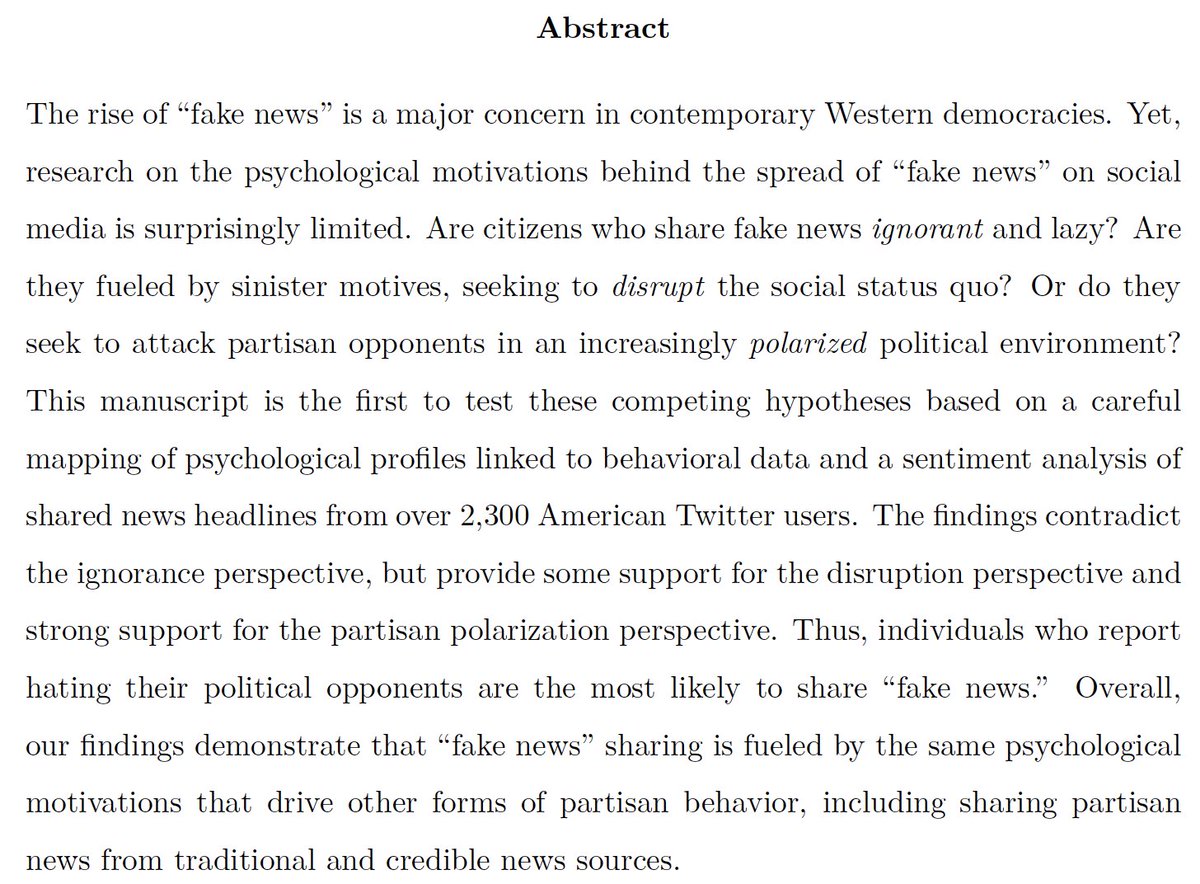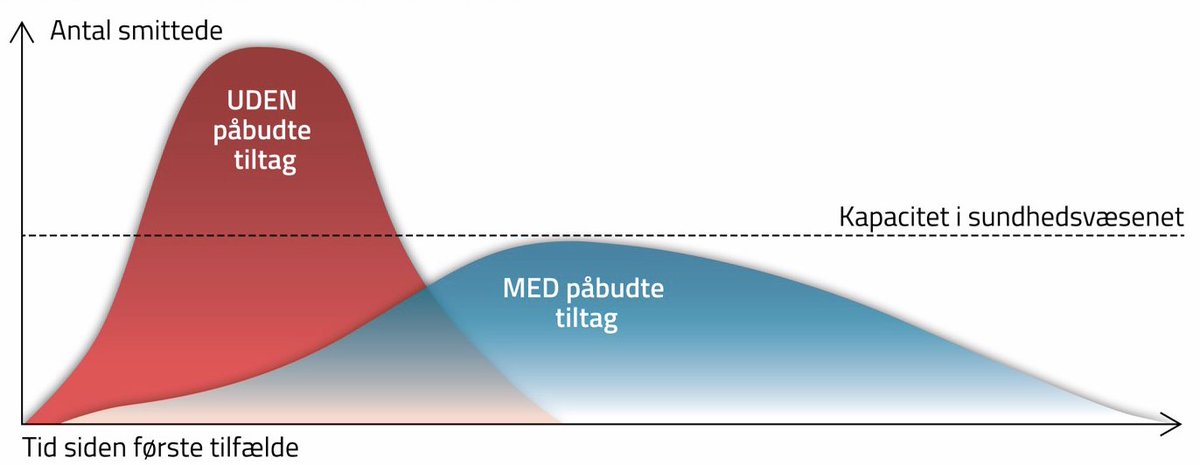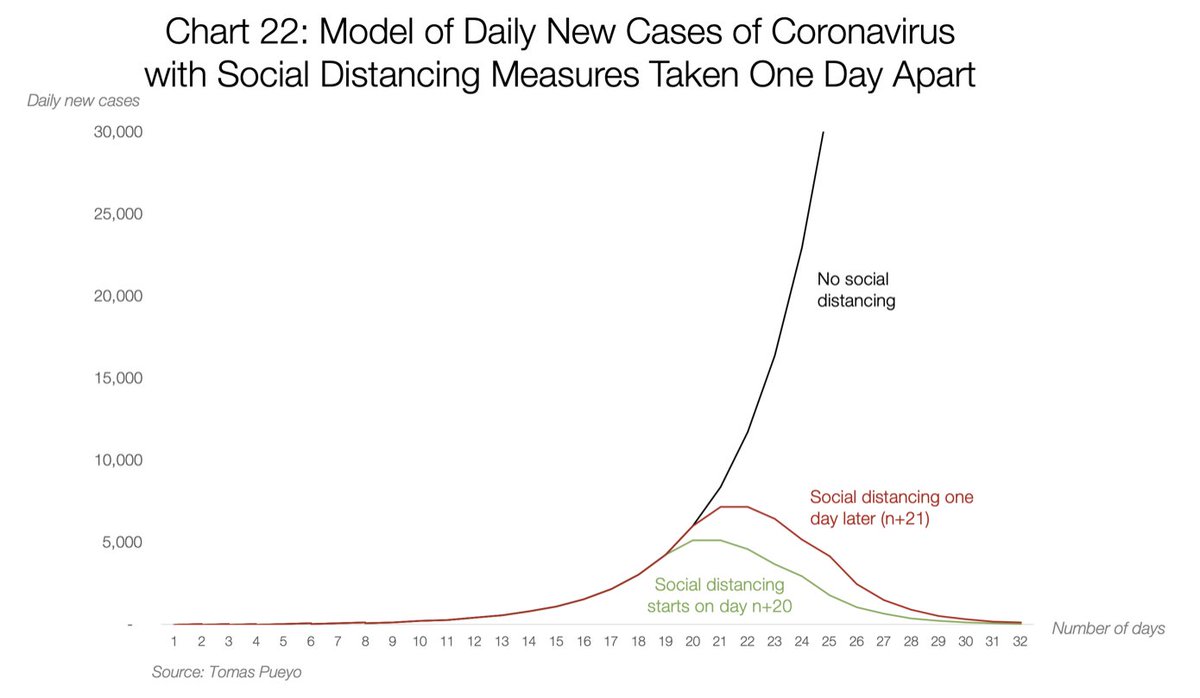
🚨New in @PsychScience 🚨How to encourage distancing and mask use? We show that induction of empathy towards vulnerable groups is effective: journals.sagepub.com/doi/10.1177/09…. Due to the skewed risk-profile of #covid19, empathy may be a behavioral key to hinder infection spread. [1/6] 

First, we demonstrate that observed empathy for vulnerable groups predict adherence to physical distancing across countries (the US, the UK and Germany). [2/6] 

Second, we show that materials that induce empathy towards vulnerable groups increase motivation to adhere to physical distancing. Non-emotional information was not itself enough to increase this motivation, only when coupled with the empathy induction. [3/6] 

Third, we replicate these findings for motivations to wear a mask. The factual information was from German national health authorities. Empathy was induced via a story about the experiences of a vulnerable person when she had to interact with non-mask-wearing others. [4/6] 
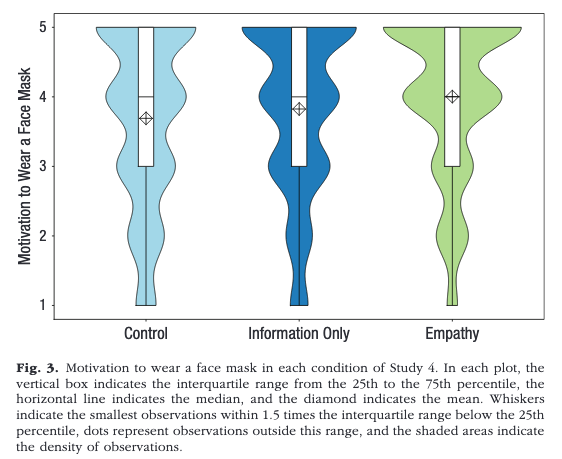
In sum, it may be difficult to motivate distancing and mask-wearing because many, especially young people, do not feel personally at risk, due to the risk-profile of COVID-19. During the 2nd wave of the pandemic, a communication focus on creating empathy might be key. [5/6]
If you want to learn more, you can find our preprint, preregistration and replication materials here (psyarxiv.com/y2cg5/) and here (osf.io/pq3ky/) [6/6]
• • •
Missing some Tweet in this thread? You can try to
force a refresh

